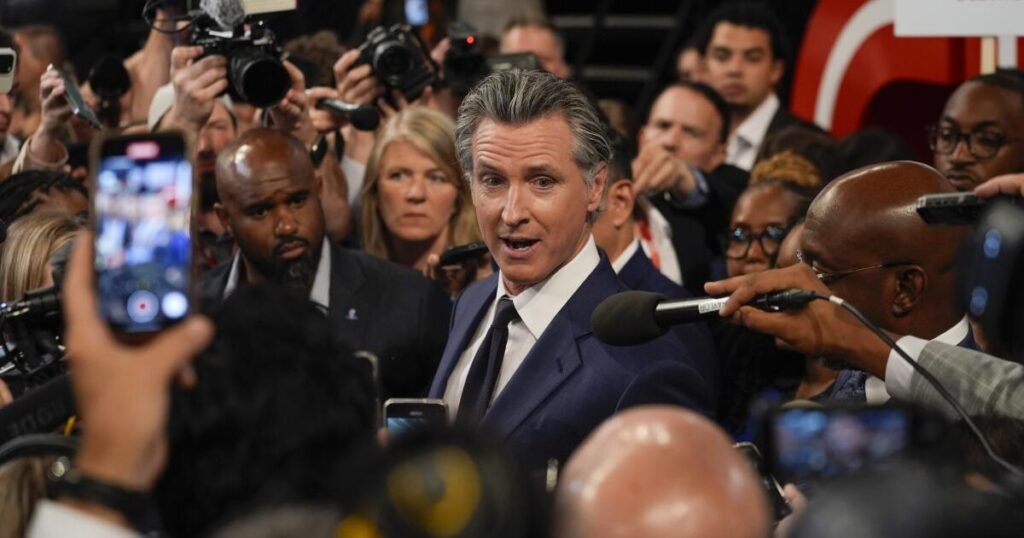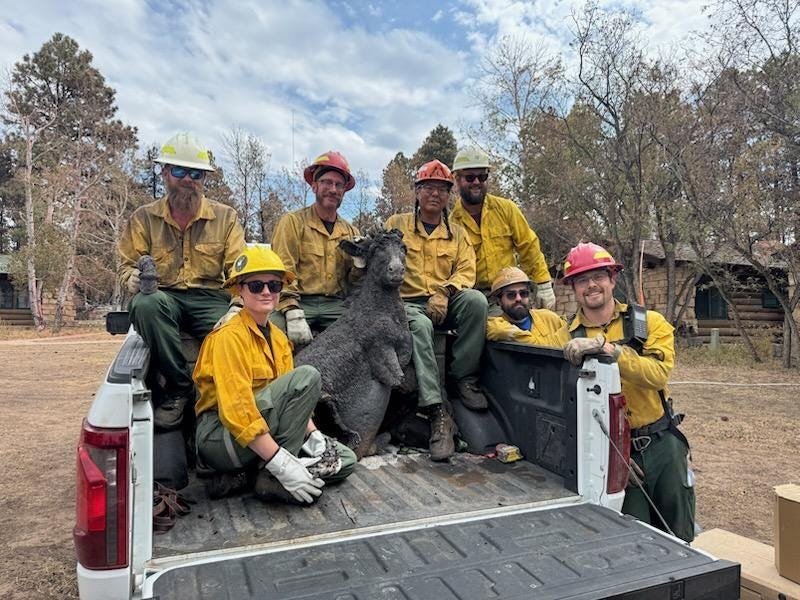Gov. Gavin Newsom has previously spoken loudly about making the internet giants pay for the goods they steal and profit from, but last week he killed a bill that would have required them to pay for news articles.
When the governor saw the word “tax increase” in the bill, he signaled that he would veto it. Politically, that makes sense.
But that contradicts what Newsom said in his first State of the State address shortly after taking office as governor in 2019.
He said people have a “right to know and to control how their data is being used” from which internet companies make billions of dollars in profits.
The Governor then added importantly (at least it seemed like it) that Californians “should be able to share in the wealth that is generated from their data. So I've tasked my team to develop a new data dividend proposal for Californians, because we recognize that your data has value, and it belongs to you.”
Surely one would think that stories produced by a news organization are the property of the news organization and that the stories could be sold, not stolen. The new governor's proclamation created excitement in the news media.
The industry has interpreted “data” broadly to include its own products: Major internet and social media platforms have stolen journalists' work for free and built their own lucrative advertising programs around the stolen stories, or seized the information to create their own posts.
As a result, newspaper advertising is drying up, and the manipulation of platforms means newspapers' digital advertising is unable to make up for that revenue.
About a third of the nation's newspapers have closed since 2005. In California, small and mid-sized towns are at risk of becoming so-called “news deserts.”
But Newsom's “data dividend” idea never came to fruition.
But some lawmakers have been trying for two years to craft legislation that would require Google and other tech giants to pay news organizations for distributing their products.
The bill, introduced by Rep. Buffy Wicks (D-Oakland), would require major platforms like Google to pay news publishers for articles.
Another bill, introduced by Sen. Steve Glaser (D-Orinda), would impose a “data extraction fee,” or sales tax, on platforms that make more than $2.5 billion a year from advertising to state residents. The bill would hit Google, Amazon, and Meta and generate $1 billion a year, half of which would go to a partial tax credit for reporters' salaries and 40 percent would go to schools.
There have been intense negotiations between Wicks, who is working with the California Newspaper Publishers Association, and the internet giants.
But Google and its giant brethren are so powerful that they can all but dictate the legislature and intimidate the governor with ease. They are reminiscent of the railroad robber barons of more than a century ago, who were eventually contained by Progressive reforms.
As the election approaches, there is a flock to Silicon Valley to raise campaign funds, but currently no major politician is leading the attack on the tech monopolies.
The major platforms ran disingenuous ads denouncing the law as an “internet tax,” as if consumers would have to pay the government just to log into Amazon.
Big tech companies minimized their payments, fearing that if California's law required them to make larger payments to news organizations, it would set off a similar pattern in the rest of the country.
And Newsom had no intention of fighting them or signing a bill that would raise taxes.
“There was no way the governor would have signed either bill. He viewed them as taxes,” said former Assembly Speaker and Sen. Bob Hertzberg, who served as the governor's chief negotiator while Wicks stomped ahead as chairman of the Assembly's busy Appropriations Committee.
“So how do we get funding for journalism?” he asks.
“Politics is the art of the possible,” Wicks replies.
They negotiated a deal with Google and Newsom that didn't require any legislation, just a commitment from the governor to put in $70 million in state funds over the next five years. The governor is leaving office in two years, and Google will contribute about $173 million. In total, that comes to about $250 million, starting with $100 million next year.
The public-private partnership will be run by the University of California, Berkeley's Graduate School of Journalism. Most of the funding will be distributed to journalism-related organizations. Some of the funding will be used to develop ways for journalists to use AI technology.
“This agreement represents a major step forward in leveraging the tech industry's significant resources, ensuring the survival of news organizations across California and strengthening local journalism without imposing new taxes on Californians,” Governor Newsom said in a statement.
But Glaser argued the agreement “does not provide enough resources to pull independent journalism in California out of its death spiral.”
The newspaper industry was divided.
The publishers association called the deal a “positive development” but complained that it “does not adequately address the critical needs of California's news industry…. Given that Google and other technology companies generate significant revenue from the distribution of journalistic content, their financial commitments should have been stronger.”
Journalists' union leaders questioned whether “the state has done more harm than good” by agreeing to the “disastrous deal”.
But journalists unions have no political influence over elected officials, and unlike other unions, it would be unethical for them to donate to campaign funds, even if they had the money to do so, nor would it be ethical to threaten to boycott coverage of politicians.
So let's be grateful for what we have. Like railroads, Google will come. This is an ongoing story.







